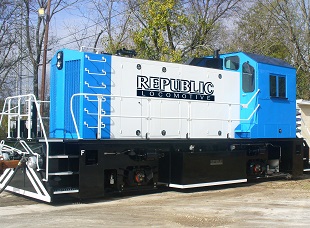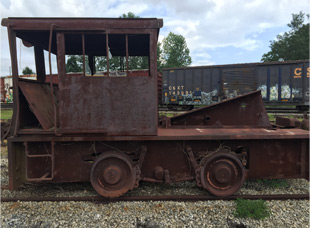We are frequently asked why you should invest a substantial amount of capital in a new RX500 locomotive as opposed to rebuilding an old unit or leasing one from a third party. Most of the old units were built in the 1950s or 1960s. A few were built in the 1970s and a handful are still running from the 1940s. Therefore, most of the older units are 50 or 60 years old. Needless to say, there have been great improvements since then.
Operating Costs – The RX500 typically uses about one-third the fuel of an equivalent old locomotive. This results in a fuel savings of 1,000,000 gallons over the life of the unit, which will justify the purchase price. The other big contributor is maintenance costs. A new locomotive, under warranty, can be expected to have far less costs than the older units, and can easily rival fuel costs in savings. In addition, new parts are readily available, unlike with the old locomotives.
Reliability – It is rare for the new RX500 to be out of service, unlike the older units. In fact, it is not unusual for one or two backup locomotives to be provided in a rental application in order to keep an old one running. On the other hand, the RX500 frequently operates without a back up.
Safety – Of paramount importance is the safety of the crew and plant operation. The RX500 has a stellar safety record thanks to improved visibility, better braking, fail-safe systems, event recording, video monitoring, and very quiet operation. Non spark exhaust and traction motors eliminate fire risk and low voltage controls prevent electrical shock and arcing.
Emissions – The RX500 is the cleanest locomotive in operation. The Tier 3 or Tier 4 engine reduces emissions by more than 90% and greenhouse gases by two-thirds.
Ease of Operation – The RX500 is far simpler to operate than the old units. A simple joystick control makes for fast training and safe operation. In addition, maintenance consists primarily of lubricants and filters which are easily changed and readily accessible. Also, no special tools or skills are required either to maintain or to operate the unit.



